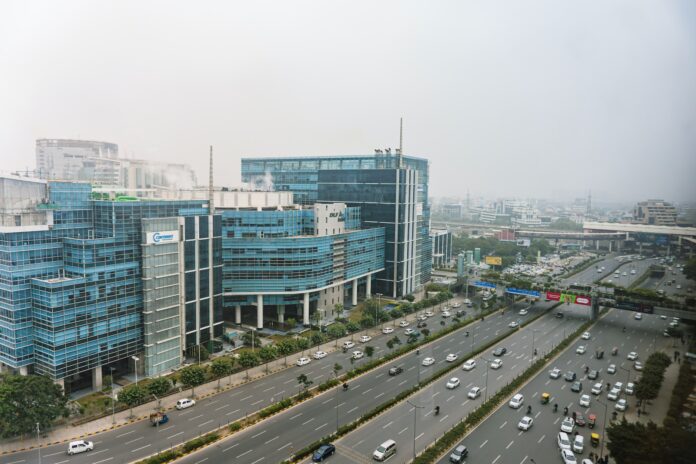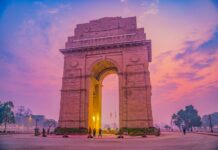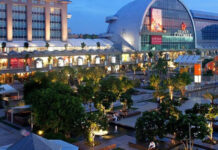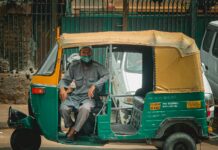
Gurgaon, officially known as Gurugram, is a bustling city located southwest of New Delhi in the Indian state of Haryana. Over the past few decades, it has rapidly transformed from a sleepy town into a leading financial and industrial hub, home to offices of major companies like Google, Facebook and Microsoft. For those unfamiliar with the city, this beginner’s guide provides a helpful overview of Gurgaon and what it’s like to live there.
History and Development of Gurgaon
Gurgaon has ancient origins, but the area’s rapid growth only began in the 1980s. As real estate prices soared in Delhi, Gurgaon emerged as an attractive satellite town where land was more affordable. Large companies were drawn by cheap office space and room for sprawling campuses.
With massive investments in infrastructure, commercial development took off. Today, gleaming office towers and apartments compete with remnants of Old Gurgaon’s rural past. Ongoing construction makes the city feel like a giant work-in-progress.
Neighborhoods
Some popular neighborhoods for new arrivals include DLF Phase 1-5, Sushant Lok, Golf Course Road and Cyber City. The last two are the city’s premier business districts. For a more local experience, consider Sector 55-56, Palam Vihar or New Gurgaon.
Culture and Lifestyle
Below the surface of new wealth, Gurgaon retains a fascinating mix of small-town roots and cosmopolitan ambitions.
Food
Foodies will enjoy the amazing variety of cuisines. From roadside dhabas serving homestyle Indian meals to posh global restaurants, there’s something for every palate and budget. Don’t miss local delicacies like kebabs at Old Gurgaon eateries.
Nightlife
Thanks to a young, affluent population, Gurgaon nightlife rivals Delhi’s party scene. Bars, lounges, microbreweries and clubs stay open late. Many venues host live events like music, comedy and open mics. Popular hubs are Cyber Hub, Sector 29 and Golf Course Road.
Shopping
Shopaholics love the gleaming malls where international brands vie for attention with local boutiques. Some famous malls are Ambience, DLF Mega Mall and MGF Metropolitan. Traditional markets like Sadar Bazaar also offer bargains.
Jobs and Economy
With rapid development, Gurgaon has become a key employment generator and business hub of North India.
IT and Business Parks
The city houses over 250 Fortune 500 companies in ultramodern business parks. Top employers are in technology, consulting, outsourcing and finance sectors. Prominent parks include Cyber City, Golf Course Road and Udyog Vihar.
Real Estate
Robust demand for commercial real estate fueled Gurgaon’s early growth. Now the residential market is thriving, driven by affordable housing and luxury apartments. All major developers like DLF have a significant presence.
Transportation
Navigating Gurgaon may seem daunting initially, but improving infrastructure has helped.
Getting Around
Public transport options like the metro, buses and auto-rickshaws make car-free travel feasible. Ola and Uber are ubiquitous. Cycling is gaining popularity on dedicated tracks.
Metro
Gurgaon Metro connects to Delhi’s network. Rapid Metro runs intra-city. Together they provide reliable, efficient transit through busy areas.
Buses
An extensive bus network serves major arterial roads and interior areas. For short distances, these are the cheapest option. Try route apps to decipher complex routes.
Auto Rickshaws
For last-mile connectivity, nothing beats these three-wheeled tuk-tuks. Negotiate fares before getting in and clarify destinations to avoid hassles.
Major Roads and Expressways
Arterial roads like Mehrauli-Gurgaon Road connect neighborhoods. Expressways such as NH48 provide quick access to Delhi and beyond via car. Traffic is heavy, so plan accordingly.
Healthcare
With world-class private hospitals, Gurgaon offers advanced medical care catering to residents and medical tourists.
Hospitals
Leading hospitals like Fortis, Medanta and Artemis provide cutting-edge treatment from oncology to organ transplants. Many have international accreditations. While care is pricey, even middle-class patients have access.
Clinics
For minor illnesses, clinics and medical centers throughout the city offer consultation and treatment at modest rates. Quality varies, so check recommendations.
Education
Gurgaon’s schools and colleges reflect the aspirations of its knowledge-driven community.
Schools
Parents are spoiled for choice between premium international schools, elite Indian schools and more affordable options. Admission is competitive with long waitlists at the most sought-after institutions.
Colleges and Universities
While Gurgaon is more of a corporate hub, higher education is now getting a boost too. Upcoming government universities join private institutes like Amity University and GD Goenka University.
Tourism
Although not yet a major tourist draw, Gurgaon does offer lively divertissements for visitors and residents.
Sightseeing
Kingdom of Dreams
This lavish theatrical attraction transports visitors into Bollywood fantasies through live shows, interactive museums and replica film sets.
Sohna Road
For a taste of rustic Haryana, head to Sohna Road. Here, ancient temples like Sheetla Mata Mandir coexist with popular resorts and water parks.
Amusement Parks
Adventurous families flock to entertaining parks like Appu Ghar and Amaazia. These offer rides, sports, shows and entertainment galore across sprawling campuses.
Living in Gurgaon
While Gurgaon dazzles with its modern amenities, life here has its own unique rhythms.
Safety
Overall, the city is quite safe compared to other Indian metro areas. However, most neighborhoods are very car-centric, so pedestrians and cyclists need caution. Petty crimes like pickpocketing can occur around crowded spots.
Cost of Living
Gurgaon offers higher salaries but also a higher cost of living compared to other Indian cities. Rent, dining out, utilities and international school fees are pricey. Managing a middle-class budget requires careful planning.
Housing
The apartment-living culture fuels the city’s transient vibrance. From no-frills studio rentals to lavish condominiums, housing options abound in this tenant’s market. Be prepared for security deposits and broker fees.
Conclusion
For newcomers, Gurgaon’s glass and steel exterior may seem intimidating initially. Look behind the glitzy facade to find a welcoming community pursuing the Great Indian Dream in its many avatars. With an adaptable attitude and curiosity about local customs, you will soon call Gurgaon home.
FAQs
1. What is Gurgaon best known for?
Gurgaon is best known as a rapidly developed satellite city of Delhi and a hub for major corporations, IT companies, and call centers. It has seen tremendous commercial growth and urbanization in recent decades.
2. How hot does it get in Gurgaon?
Summers in Gurgaon can be very hot, with temperatures reaching 45°C or higher. The hottest months are typically from April to June. Monsoons bring some relief from July to September.
3. What are the best places to eat in Gurgaon?
Some top restaurants in Gurgaon for Indian and global cuisines are Berco’s, Farzi Cafe, Raasta, Warehouse Cafe, and Smoke House Deli. For local delights, try Old Gurgaon eateries.
4. Is the metro the best way to commute in Gurgaon?
Yes, the Metro is generally the fastest and most efficient way to travel in Gurgaon. The Metro’s Yellow and Rapid lines connect major areas. Buses and autos also provide good connectivity.
5. Where do expats usually live in Gurgaon?
Popular residential areas for expats include DLF City, Sushant Lok, Golf Course Road, Sector 56-57 and New Gurgaon. Choosing a neighborhood depends on work location, budget and lifestyle preferences.











